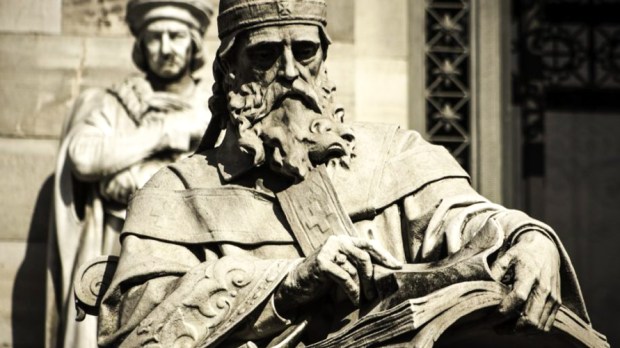The proper place of the intellectual is far from being an ivory tower. Catholic intellectuals, moreover, have a specific responsibility for “deciphering the meaning of the present” and “fighting cynicism in all its forms.”
These are only two of the ten indispensable tasks of the Catholic contemporary thinker the philosopher Francesc Torralba of Ramon Llull University in Barcelona shared at the Second Congress of the journal Questions of Christian Life and the Fundació Joan Maragall, held at the Catalonian Benedictine Monastery of Montserrat.
Here are Torralba’s challenges:
- Deciphering the meaning of the present, articulating a cartography of current times, and exploring the vectors that move both culture and the tacit assumptions of the present. This task requires the ability to distance oneself from one’s own immediacies, in order to be able to detect what is noble, beautiful, truthful and good in our times while, at the same time, not ignoring its many dark facets.
- To linguistically recreate tradition (religious, intellectual, scholar and so forth), articulating it in a language that is meaningful, clear and intelligible for contemporary men and women of today. This includes avoiding falling not only into stony traditionalism, but also into novolatry.
- Maintaining an active commitment to rationality, identifying its powers as well as its limitations, avoiding the temptations of emotivism, but also those of sheer uber-rationalism. A Catholic intellectual, it is expected, should be able and willing to fight against credulity and fideism.
- Building bridges with the spiritual and religious traditions of humanity but also with the new forms of secular spirituality that emerge outside formally articulated institutions.
- Articulating a prophetic call in favor of the most vulnerable, the excluded and the marginalized of our society, and acting in defense of the inherent, unalienable dignity of every human person.
- Do not renounce modern criticism (that is, understanding the proper limits of human knowledge, its possibilities and sources), applying it both ad intra (within the ecclesial institution) and ad extra (“out there” in the world). The Catholic intellectual must live his or her belonging to the ecclesial community without complexes, but also without avoiding the pain that being a member of the Church sometimes implies.
- Betting on media visibility. A Catholic intellectual must not be afraid of our contemporary digital agora, and must have the audacity of being present in this space, sharing and proposing one’s own worldview. Of course, he or she must resist the temptation of hypervisibility, but also the tendency to marginalize oneself and taking refuge in the comfort of the herd. A Catholic intellectual must go outside, having the audacity of being in the public square.
- Commitment to the noble causes of society, fighting moral puritanism (and the temptation of perfectionism), elite morality and the tendency to play the role of a neutral viewer. Neutrality is not for the Catholic intellectual, who must be an actor and not a passive spectator of the world, improving it while being involved in the organizations able to positively transform society.
- A Catholic intellectual must recognize the great artistic, cultural and philosophical productions and of secular culture, including those of atheistic humanism.
- Articulating a hopeful discourse, capable of rationally combating the tendency of historical nihilism and, especially, not making room for discouragement provoked by the current course of historical events. The Catholic intellectual must combat cynicism in all its forms, especially that which can be born out of personal experiences.

